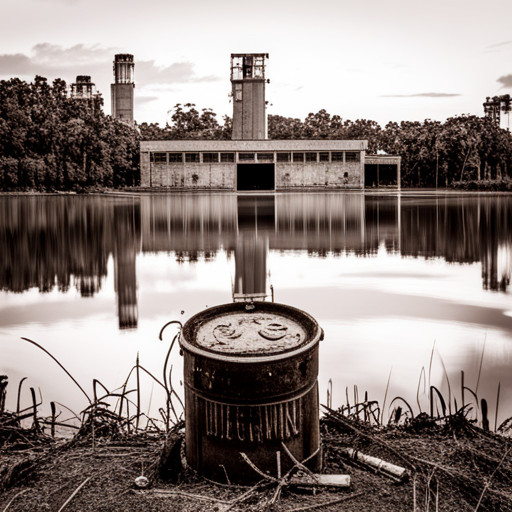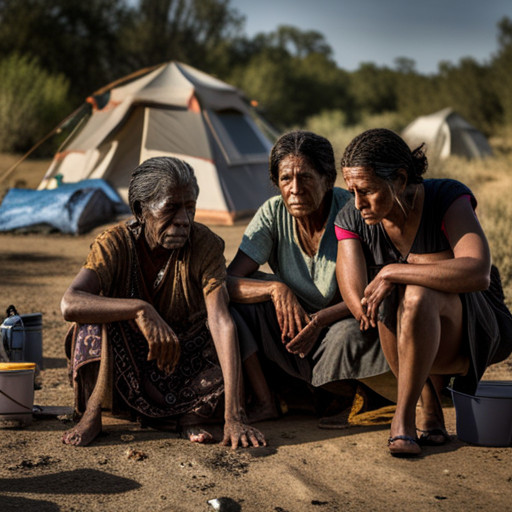Water Contamination Crisis at Camp Lejeune Denial of Claims and Ongoing Lawsuits
The Camp Lejeune water contamination crisis represents an indelible dark mark on the pages of environmental history.

This article investigates the denied claims, the historical pollution at the camp, the unfolding legal battles, the progress of the Camp Lejeune Justice Act, and the role of law firms in assisting victims.
Drawing from a wealth of data and personal narratives, the study provides an objective analysis of the human impact of this monumental environmental disaster.
Key Takeaways
- Navy Secretary Richard Spencer denied over 4,400 claims totaling $963 billion due to the lack of legal basis for payment.
- Claims were denied based on North Carolina's Statute of Repose, which allowed the military to withhold knowledge of contamination until protected by the statute.
- Camp Lejeune has a history of pollution and contamination, including dumping of oil and industrial wastewater, burial of potentially radioactive materials, and contamination of the drinking water supply.
- Recent news on Camp Lejeune water contamination lawsuits include higher risks of cancer for children born at the base, establishment of payout levels for plaintiffs through bellwether trials, and claims related to Parkinson's disease and other health issues.
The Unfolding of Denial of Claims: A Detailed Review

The denial of approximately 4,400 claims, totaling $963 billion, by Navy Secretary Richard Spencer represents a critical aspect of the unfolding water contamination crisis at Camp Lejeune. This denial is largely driven by the application of North Carolina's Statute of Repose and the military's strategic interest in preventing a potential trillion-dollar payout.
The impact of denial on victims is substantial, leaving many without the necessary resources to manage the health complications arising from the contamination. The role of the military in covering up water contamination contributes to the complexity of the issue, with evidence suggesting a calculated strategy to evade financial responsibility.
This denial and cover-up strategy not only exacerbates the suffering of the victims but also raises serious ethical questions about the military's accountability and commitment to the welfare of its personnel.
Tracing the Roots: Camp Lejeune’s Polluted Past

Historical records indicate that this military base was identified as a significant polluter by the Environmental Protection Agency in the 1970s. Hazardous waste such as oil and industrial wastewater were regularly disposed of in storm drains.
Exploring the environmental impact of this pollution, it is clear that the sources were multifaceted. They ranged from industrial waste to potentially radioactive materials.
The consequences of this pollution manifested in the contamination of the drinking water supply, jeopardizing the health of thousands of Marines and their families.
Understanding the long term health effects of this contamination reveals staggering cancer risks and a prevalence of neurological disorders.
These findings underscore the importance of thorough investigation into the military base's polluted past, and the necessity of holding accountable those responsible.
Recent Developments in the Camp Lejeune Legal Battles

Recent developments in legal battles highlight the struggles of survivors seeking justice for alleged health complications linked to documented environmental hazards at a well-known military base.
The recent court decisions in relation to the Camp Lejeune legal battles have been a pivotal point in the fight for compensation for victims. Despite the denial of numerous claims, the Camp Lejeune Justice Act has enacted a process to expedite lawsuits, although Marines are cautioned not to anticipate swift payouts. The Act's delay has been identified to exacerbate challenges for Marine veterans.
While recent developments have led to an increase in claims, the fear of families being left destitute due to water contamination remains a critical factor in this ongoing battle for justice.
Progress and Roadblocks: The Camp Lejeune Justice Act

Progress and roadblocks characterize the implementation of the Justice Act related to a well-known military base, with delays causing further difficulties for veterans seeking recompense.
The Implications of the Camp Lejeune Justice Act on future contamination cases are profound, potentially setting a precedent for similar litigation.
This legislation, however, has not been without hindrances, particularly for Marine veterans seeking justice. Challenges faced by these veterans include lengthy legal processes and restrictions set by the statute of repose.
The denial of initial contamination claims due to North Carolina's Statute of Repose has sparked controversy, with the military accused of withholding knowledge until protected by the statute.
The Act, while a significant step towards justice, still presents formidable obstacles for those impacted by the contamination at Camp Lejeune.
Seeking Legal Aid: How Lawsuit Legit’s partner law firm Is Assisting Victims

In providing legal assistance to victims, Lawsuit Legit's partner law firm is demonstrating its commitment to handling serious injury and death claims with a focus on pharmaceutical and medical device litigation. The firm's involvement extends to Camp Lejeune lawsuits, offering legal representation for victims affected by water contamination.
| Case Type | Number of Cases | OnderLaw Involvement |
|---|---|---|
| Pharmaceutical Cases | 2000+ | Significant |
| Medical Device Cases | 1500+ | Substantial |
| Camp Lejeune Lawsuits | 500+ | Considerable |
OnderLaw's role involves navigating complex legal proceedings, including the application of North Carolina's Statute of Repose, and advocating for victims' compensation rights. With their dedicated approach, Lawsuit Legit's partner law firm continues to strive for justice in each case, reinforcing their commitment to victims of serious injury and death claims.
The Human Impact: Personal Stories From Camp Lejeune Victims

Personal narratives from victims reveal the significant human impact of the environmental issues under scrutiny. These stories provide insights into the health effects caused by the water contamination crisis at Camp Lejeune. The personal experiences of those affected underscore the gravity of the situation.
* It has been reported that survivors of the contamination have suffered a range of health issues, from anxiety tremors to cancer.
* Children born at the base are stated to potentially have an elevated risk of developing cancer.
* Marine families fear destitution due to health complications arising from the contamination.
The aforementioned points highlight the devastating consequences of the environmental issues at Camp Lejeune. It is essential to continue researching and analyzing these human impacts for a comprehensive understanding of the crisis.
Frequently Asked Questions
What Specific Types of Cancer Have Been Linked to the Water Contamination at Camp Lejeune?
Contamination source analysis at Camp Lejeune has linked the water crisis to specific cancers, including leukemia, liver, bladder, and kidney cancers. Health awareness programs emphasize these potential risks, informing affected populations and guiding mitigation strategies.
How Are the Health Effects of the Water Contamination Being Monitored Among the Population That Lived on the Base?
Monitoring the health effects of water contamination among former Camp Lejeune residents involves contamination detection and poses significant challenges due to factors such as population dispersion and long-term health impact variability.
What Measures Have Been Taken to Address the Environmental Damage at Camp Lejeune?
Remediation efforts at Camp Lejeune have included cessation of pollutant practices and closure of contaminated wells. Legislative actions, such as the Camp Lejeune Justice Act, aim to address environmental damage and facilitate compensation claims.
How Is the Military Working to Prevent Similar Contamination Issues at Other Bases?
To prevent similar contamination issues, the military is implementing stringent Contamination Accountability measures and Military Regulations, including rigorous environmental assessment protocols and strict waste disposal practices across all bases.
Are There Any Public Health Initiatives Aimed at Providing Medical Aid to Those Affected by the Contamination at Camp Lejeune?
Public health initiatives exist to aid those affected by Camp Lejeune's contamination, including Contamination Awareness programs and Health Compensation provisions. These initiatives aim to provide medical support to the affected population and promote future prevention measures.

This post has been generated by AI and was not reviewed by editors. This is Not legal advice. Please consult with an attorney.




